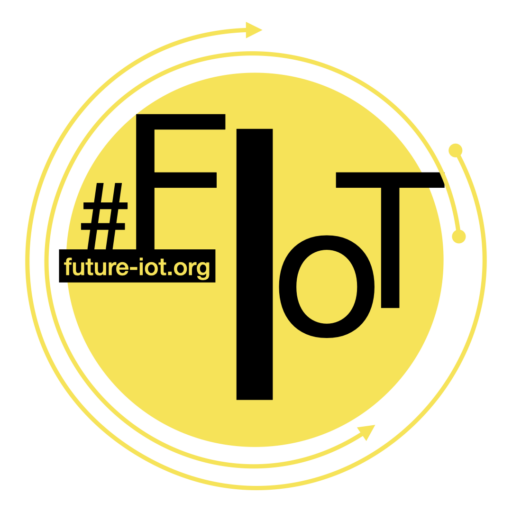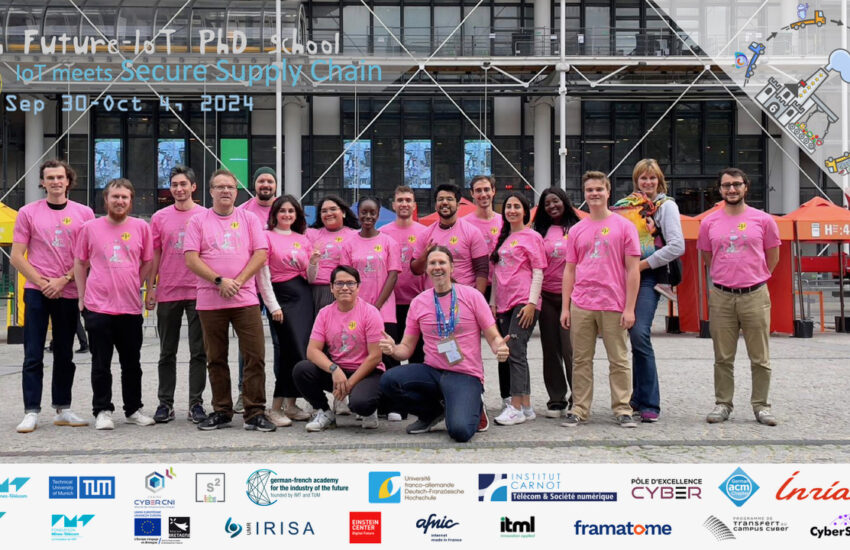Recap Summer School on Future IoT “IoT meets Autonomy” (Aug 29 – Sep 2, 2022)
The Internet of Things connects everyday objects – smartphones with Bluetooth speakers and smartwatches – but also networks medical devices with each other and is used in logistics, for example. The Future-IoT Summer School brought together (PhD) students, experts and companies to spend a week listening to exciting lectures, exploring the city, and working on challenges around the topic of IoT, because the Internet of Things has already become part of our everyday lives.
The fifth edition of the Summer School was dedicated to the topic “IoT meets Autonomy”: Many of the computer systems around us work autonomously, they just run, completely without human intervention. They adapt to their environment or evolve with machine learning, but the implementation of such functions is often challenging: “The challenges are not only technical, but also ethical, societal, legal, which is why we are dedicating this edition of the Summer School to the topic of ‘autonomy’. In the Challenges, participants will explore different forms of autonomy using IoT as a use case. The topics include data analytics, machine learning, IoT protocols and cybersecurity,” explains Prof. Dr. Marc-Oliver Pahl, initiator and director of the Summer School and professor for cybersecurity at IMT Atlantique in France.
In the Summer School, the focus was primarily on the Internet of Things in Industry (IIoT). Dr. Jochen Schiller, board member of the Einstein Center Digital Future (ECDF) and Professor of Computer Science at Freie Universität Berlin, welcomed the participants to ECDF: “Much more than all the computers we interact with and see every day, the small computing devices in the Internet of Things will help influence our lives in the future. These billions of networked things must not only be controlled individually, but also operated reliably, robustly and securely in their totality. I therefore very much welcome the PhD School’s initiative “IoT meets Autonomy”, which brings young PhD students closer to the technologies in the Internet of Things in a variety of “hands-on” ways and therefore sheds light on their fascinating possibilities, as well as their limitations, particularly with regard to their (partially) autonomous operation from many different angles,” said Schiller.
After the introductory keynote on IoT meets AI, Prof. Dr. Falko Dressler, Chair of Telecommunications Networks at the Faculty of Electrical Engineering and Computer Science at TU Berlin and Principal Investigator at ECDF, introduced Cyber-Physical Systems; this was followed, among others, by contributions from Airbus on autonomy and innovation as a pathfinder for the aviation industry, Siemens on autonomy and Industry 4.0, and Amazon Web Services on AI and the “Smart Territory Framework” that allows smart environments to be built with multiple sensors. In the challenges, the participants partly worked on real problems of the industry partners: “During the week, the participants have the chance to gain insight into many different aspects around the Internet of Things: From device manufacturing to communication protocols and semantics to application management” explains Dr. Fabian Rhein, Manager Siemens Research and Innovation Ecosystems.
In the challenges, participants linked moving and grasping robots together, programmed clocks, LED tubes and volume controls to blink simultaneously, and linked smart-home devices together to automatically set the optimal room temperature. Dr. Ana Maria Drăgulinescu, a post-doc at the Universitatea Politehnica din Bucuresti, was participating in the Summer School for the second time: “I have already participated in the Summer School on the topic of “IoT meets AI” in Munich. I really enjoyed the work back then and it also helped me a lot with my PhD thesis. I am happy to be back again this year and to work with my team on another challenge.”
At the end of the week, the interdisciplinary jury was impressed by all the projects and chose the team “Streams for Memes” as the winner of the Summer School. The team, consisting of students Samia Boutalbi, Lucas Camino, Vittorio Ferrentino, Catherine Sai and Charles Thonier under the supervision of Prof. Dr. Marc-Oliver Pahl (IMT Atlantique), Lars Wüstrich (TUM) and Guillaume Neau (AWS), worked out in their challenge that memes (meaning images with text) are created from a livestream based on predefined keywords – automatically when the word is mentioned.
Since the School Series is a Franco-German collaboration, the next edition will take place in France in late summer 2023. More information and videos of the presentations during the Future-IoT Summer School can be found here.
Stay tuned for the next summer school in 2023: https://school.future-iot.org/
This article was written and published by the Einstein Center Digital Future (originally in German). Find it here!


